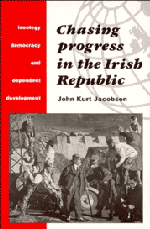Book contents
- Frontmatter
- Contents
- Acknowledgments
- Introduction
- 1 Reflex modernization: state, ideology and dependent development
- 2 Perils of planning: foreign capital, domestic policy, and the problem of state “strength”
- 3 The pale replica
- 4 The rising tide
- 5 Pushbuttons and pragmatists
- 6 Governability and corporatist compromise
- 7 Getting it right: debt, taxes, and industrial strategy, 1984–1990
- Afterword: 1991–1993
- Bibliography
- Index
5 - Pushbuttons and pragmatists
Published online by Cambridge University Press: 07 September 2010
- Frontmatter
- Contents
- Acknowledgments
- Introduction
- 1 Reflex modernization: state, ideology and dependent development
- 2 Perils of planning: foreign capital, domestic policy, and the problem of state “strength”
- 3 The pale replica
- 4 The rising tide
- 5 Pushbuttons and pragmatists
- 6 Governability and corporatist compromise
- 7 Getting it right: debt, taxes, and industrial strategy, 1984–1990
- Afterword: 1991–1993
- Bibliography
- Index
Summary
The truth that nobody would admit is that we are not independent, that except for that enormous river, called the Irish Sea, that runs between the two countries, we are effectively, economically an integral part of Great Britain.
Dr. Noel Browne, Parliamentary Debates, Dail Eireann (1970)The Common Market vote in 1972 expressed a resounding recognition of circumstances perceived by the electorate to be beyond national control. Few Irish believed that their island could thrive outside the Treaty of Rome. An official mission to Brussels became the economic equivalent of a pilgrimage to Lourdes. Thereafter an infirm economy should revive, shriveled regions flourish, and benign investors spread capital abundantly in the fair hills of Eire. So said the major parties and virtually all the media.
This chapter delves into the motives and interests underlying the enormous pro-EEC vote, which reaffirmed the legitimacy of the export-led industrialization strategy; then we examine the political and ideological role of the Industrial Development Authority, the de facto central planner. The chapter concludes by treating issues of the late 1970s: the disposition of new-found mineral resources, and the revealing furor stirred by the closure of the largest foreign manufacturing employer in the Irish Republic. By the end of the decade the consensus favoring the development scheme began to crack – but not crumble – and neo-corporatist experimentation flickered out.
- Type
- Chapter
- Information
- Chasing Progress in the Irish RepublicIdeology, Democracy and Dependent Development, pp. 94 - 126Publisher: Cambridge University PressPrint publication year: 1994



